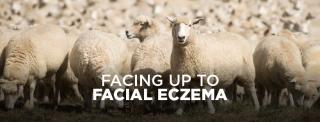Search results
Displaying 411 - 420 results of 587
- NZ red meat sector concerned about Government changes to agricultural emissions pricing proposal …

- Informing New Zealand Beef Programme reaches halfway mark …

- The aim of this project was to evaluate different ways of communication for their reach, impact and associated behaviour change. Parasite management is important for every livestock farmer and this topic was used to help evaluate five different communication methods. … The project used: analytics to assess the reach of the material models to predict the impact of this parasite campaign online surveys taken by participants immediately after viewing the material online surveys taken by …
- Page… simultaneously when making an emergency stop. Ensure brake pedals are locked together when traveling at road speeds Use extreme caution and avoid hard application of the tractor bakes when towing heavy loads Keep the tractor in the same gear … with safety, especially when operating over rough ground, when crossing ditches or slopes and when turning corners Use extreme caution when operating on steep slopes If the tractor becomes stuck, reverse the tractor out to prevent …
- Every six years, farmers vote on whether they want B+LNZ to continue to exist, funded by compulsory levies on sheepmeat and beef (including dairy-beef). … Referendums are held as required under the Commodity Levies Act 1990. The next referendum must be held no later than the 2027 year with the current Commodities Levies Meat Order 2021 expiring in December 2027. All livestock farmers on B+LNZ’s electoral roll will be provided with information: outlining the constitutional information, …
- Farmers show resilience in challenging times …

- Farmers onboard in Facial Eczema study …

- Productive discussions at Beef + Lamb New Zealand’s 2024 annual meeting …

- PageDung – particularly in water – is bad news. Faecal bacteria and pathogens can cause disease in people. Faecal contamination is monitored using E. coli (Escherichia coli) as an “indicator” organism. E. coli is a type of bacteria commonly found in the guts of warm-blooded mammals (including people) and birds. … Where does excess E. coli in our waterways come from? Common sources of E. coli bacteria include untreated human wastewater discharges, storm water run-off and animal waste. Faecal …
- PageThis page provides information on preparing for and responding to snow weather bombs, including factsheets and links to websites and organisations that can provide you with support. Please contact B+LNZ's resources team at resources@beeflambnz.com to request printed copies of resources. … Key contacts after an adverse event Support services Beef + Lamb New Zealand: 0800 233 352 Federated Farmers: 0800 327 646 Ministry of Primary Industries: 0800 008 333 DairyNZ: 0800 432 479 Fonterra: 0800 656 …